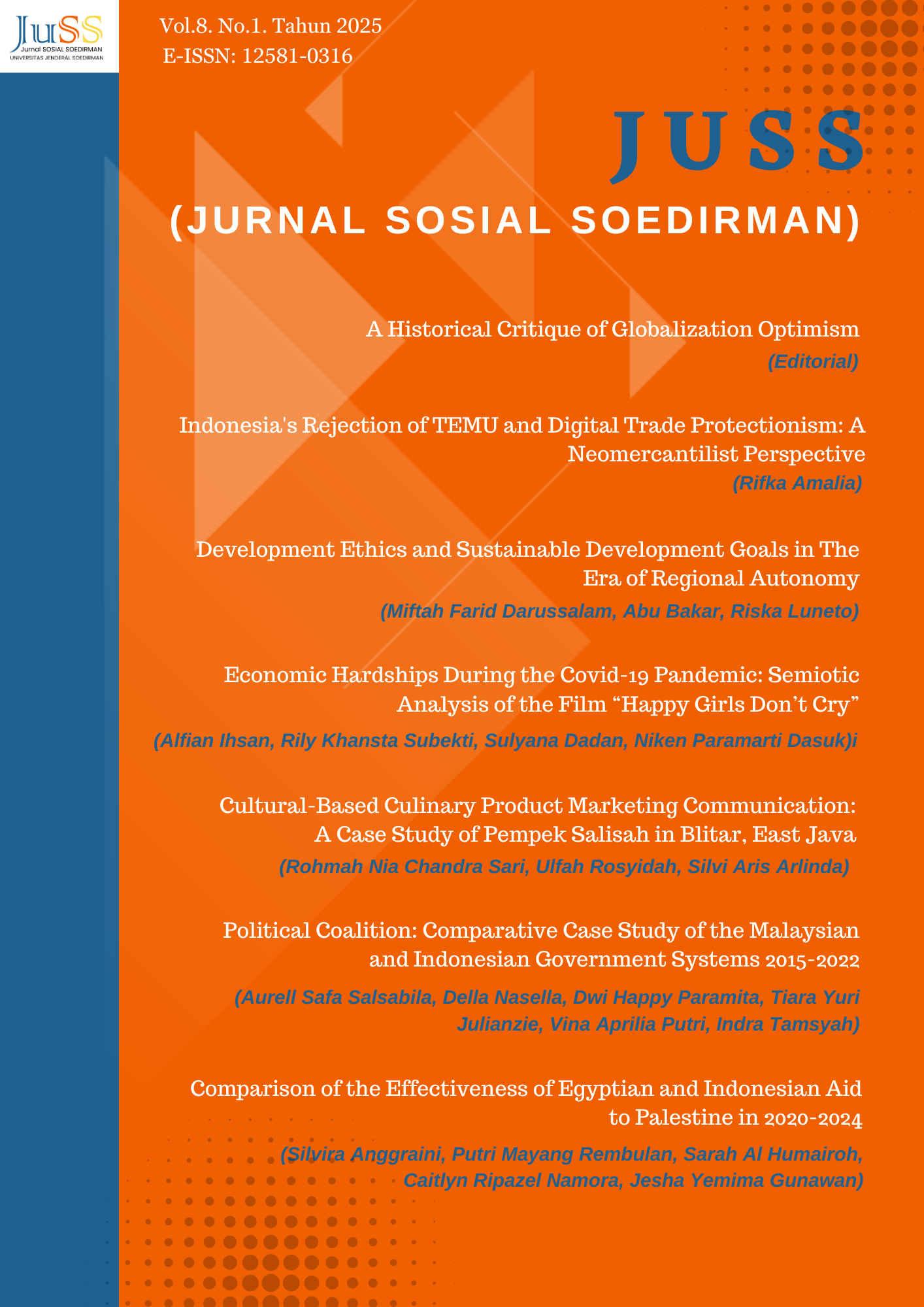Penolakan TEMU dan Kebijakan Proteksionisme Perdagangan Digital Indonesia: Perspektif Neomerkantilisme
Abstract
This study explores how Indonesia’s policy toward cross-border e-commerce platforms, particularly the rejection of TEMU from China, reflects the state's effort to renegotiate economic sovereignty amid the wave of digital globalization. Drawing on the theory of neo-mercantilism, the research argues that regulatory measures such as Trade Regulation No. 31 of 2023 serve as selective protection strategies to sustain domestic MSMEs and prevent market domination by foreign actors employing predatory pricing and cross-border trade. TEMU’s direct-to-consumer model and hybrid distribution channels bypass local value chains and create competitive distortions. The findings indicate that developing countries like Indonesia are not entirely passive under global economic pressure but instead actively shape regulatory space to enhance national competitiveness. The study concludes that Indonesia’s digital protectionism is not a form of anti-globalization, but a state strategy to address structural imbalances in global trade and assert digital economic sovereignty,



















